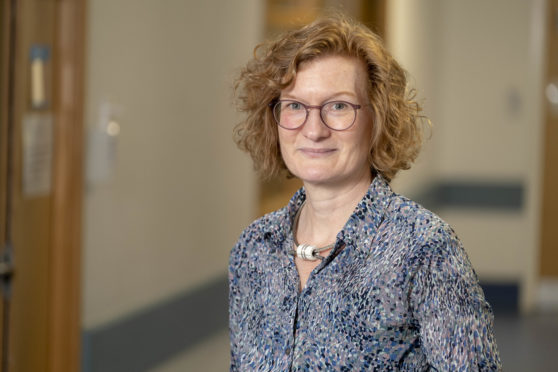
A team of scientists, led by a Glasgow Caledonian University Professor, have launched an ambitious five-year research project to develop a new NHS digital platform to improve care for people with sexually transmitted infections.
Claudia Estcourt, professor of HIV and sexual health, at GCU, as well as world-renowned sexual health experts, have created a new automated online consultation giving patients 24-hour access to medical care.
Professor Estcourt, as principal investigator, has been awarded a £2.5m National Institute for Health Research (NIHR) Programme Grant for Applied Research to lead the project entitled ‘Improving care for people with Sexually Transmitted Infections and their sex partners in a digital NHS’.
She is joined by a co-investigator team from University College London, University of Strathclyde, University of Birmingham, Barts Health NHS Trust, NHS Greater Glasgow and Clyde, West Sussex NHS Foundation Trust and Camden and Islington Council, and Central and North West London NHS Foundation Trust where the programme will be hosted.
People who test positive for chlamydia through home testing will be given confidential access to a previously developed eSexual Health Clinic (eSHC) app. The eSexual Health Clinic contains a unique-to-the-NHS online automated clinical consultation and electronic prescribing algorithm.
Patients will receive an electronic prescription to their phone and so they can pop into their local pharmacy to collect their antibiotics or get them sent straight to their home.
Health Protection Scotland figures show that in 2019 genital chlamydia remained the most frequently diagnosed STI in Scotland, with 17,336 people diagnosed and a further 3,776 were reported to have gonorrhoea. In England, there were 468,342 diagnoses of STIs in 2019.
Professor Estcourt said STIs are on the rise with half a million people in the UK diagnosed each year, they have a huge impact on people’s lives and are very costly for the NHS.
Professor Estcourt said: “We are absolutely delighted to have been awarded this grant from NIHR. The programme is particularly timely as NHS services adapt to a post-COVID world of increased remote and self-managed care.
“Sexual health funding has been cut and online STI testing (self-sampling) is replacing face-to-face care. This could help many people, but others might find it difficult to use, particularly people at greater risk of STIs. We need to understand what hinders and helps people to engage with a range of options for testing, treating and preventing STIs, within inclusive, good value for money services.
“The NHS and health systems worldwide are focussed on self-managed and online care as a future strategy to cope with the increase in health demands of growing populations. As we get increases in sophistication and tailoring of digital options it makes sense to combine them so that healthcare can be delivered at scale, cheaper and quicker, to a larger proportion of the population.
“Mindful of the potential for new technology to widen the health gap, we have a prominent theme of health inequalities and strong public engagement running through this programme.
“We have previously developed an innovative eSexual Health Clinic accessible on mobile phones, and demonstrated safety and feasibility in exploratory studies. It contains a ‘unique to the NHS’ online automated clinical consultation and electronic prescribing algorithm for comprehensive management of people with chlamydia and their partners via the Online Chlamydia Care Pathway (OCP). It could provide considerable health gains for people with STIs and could be applied across the NHS for many other health conditions, but it now needs full scale evaluation.”

Enjoy the convenience of having The Sunday Post delivered as a digital ePaper straight to your smartphone, tablet or computer.
Subscribe for only £5.49 a month and enjoy all the benefits of the printed paper as a digital replica.
Subscribe